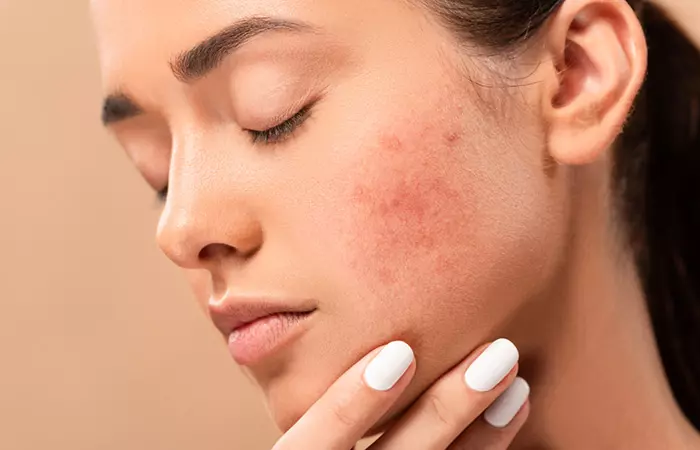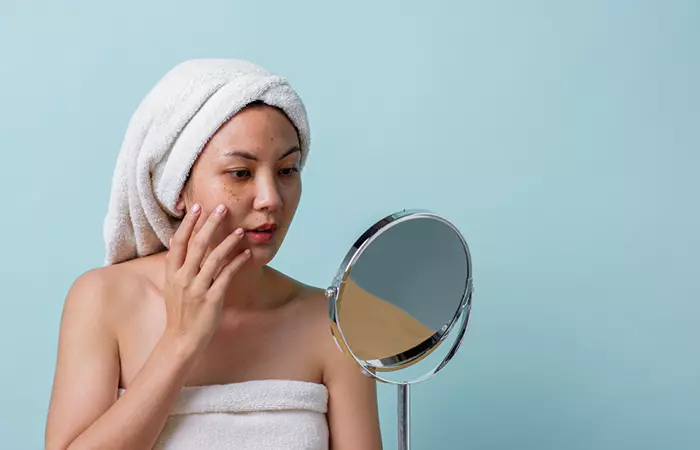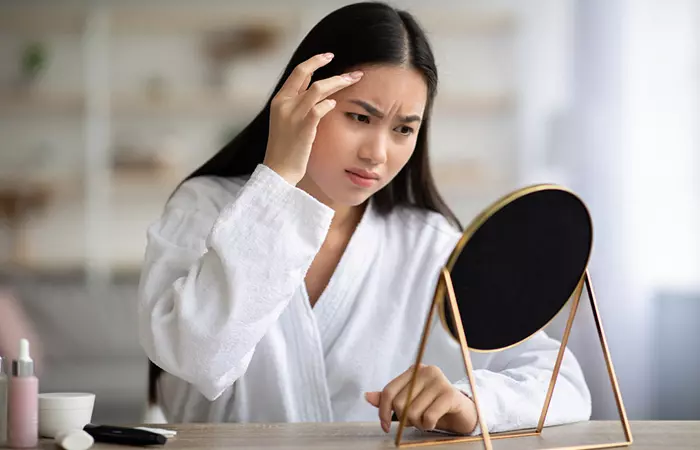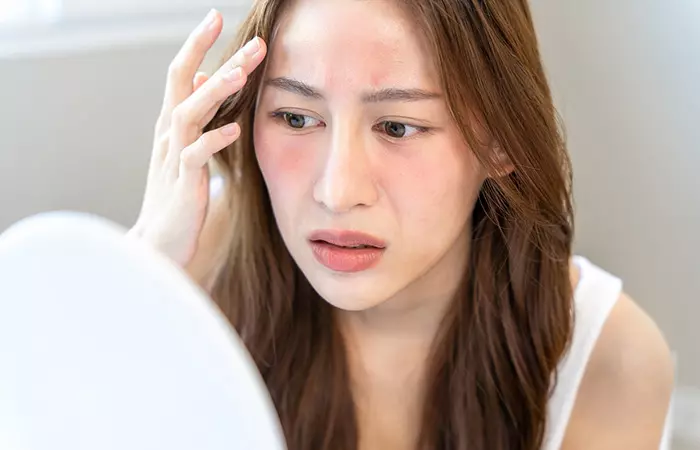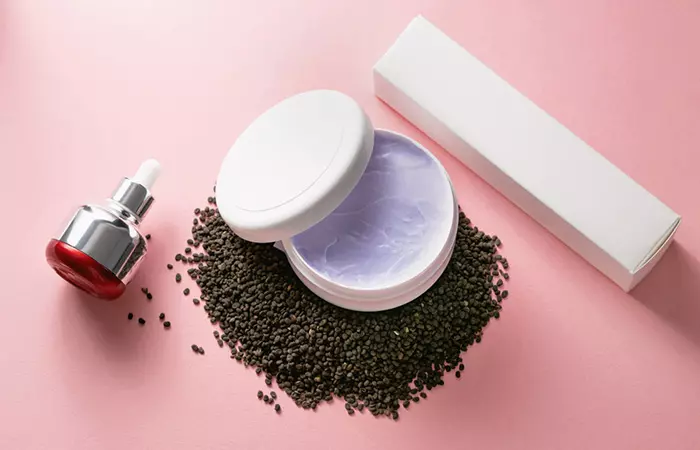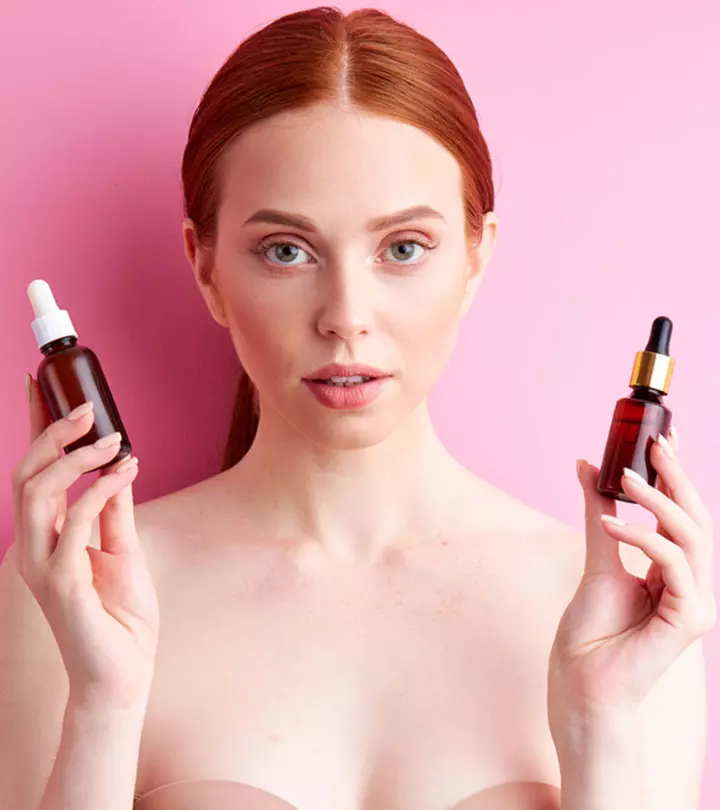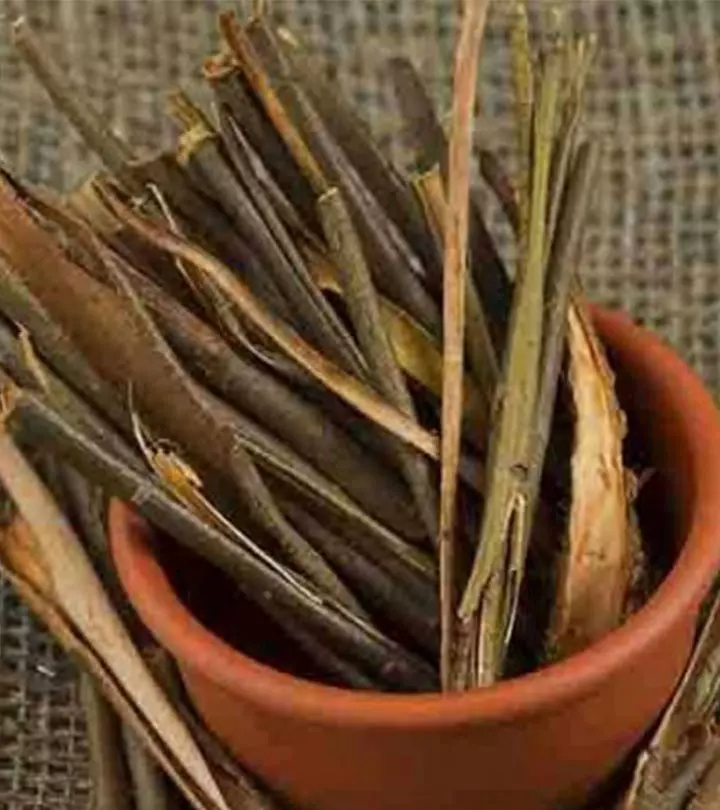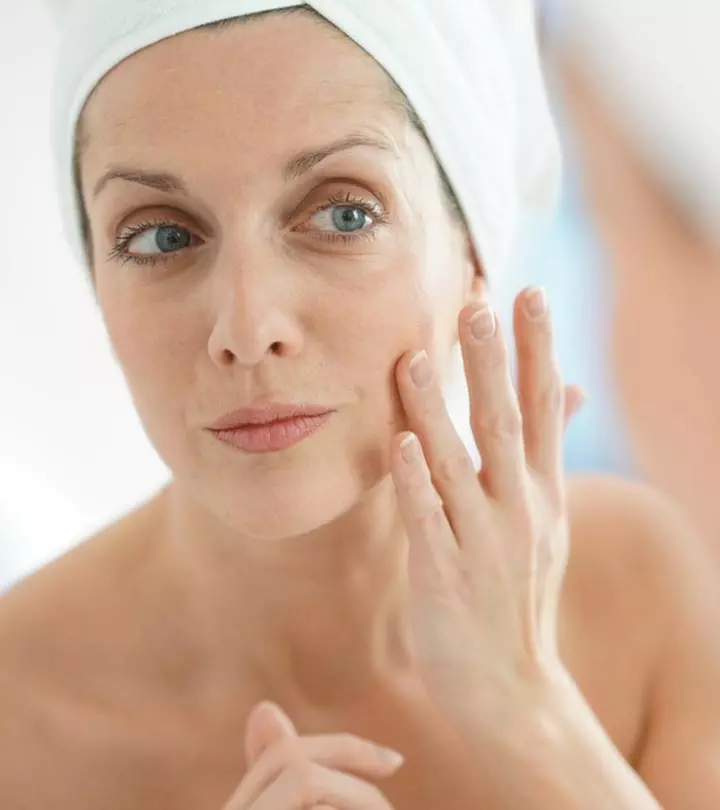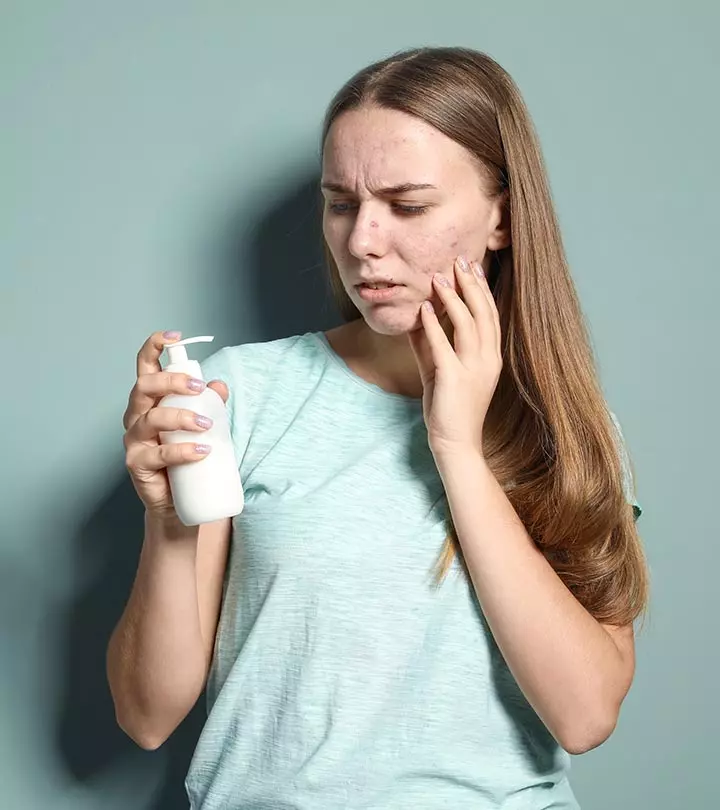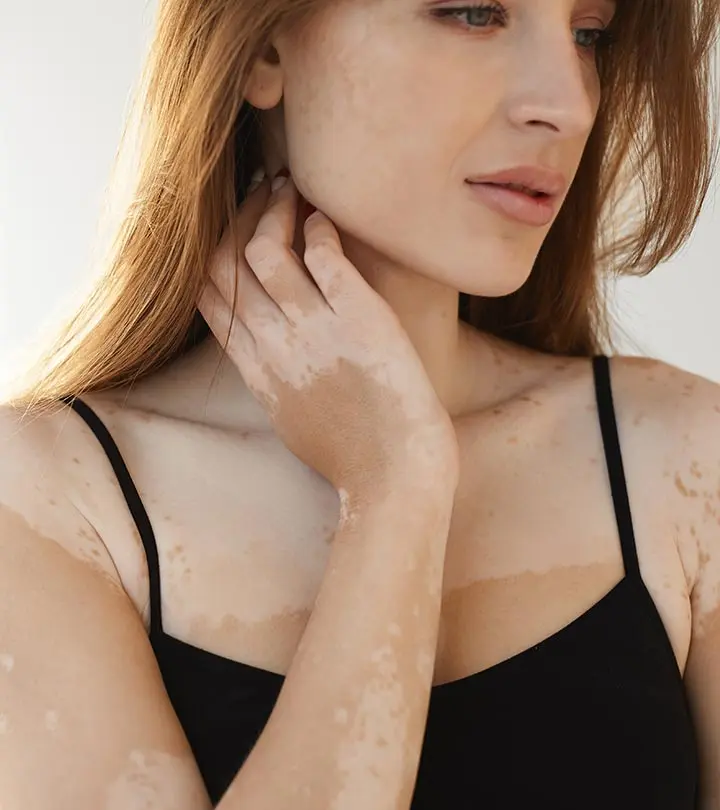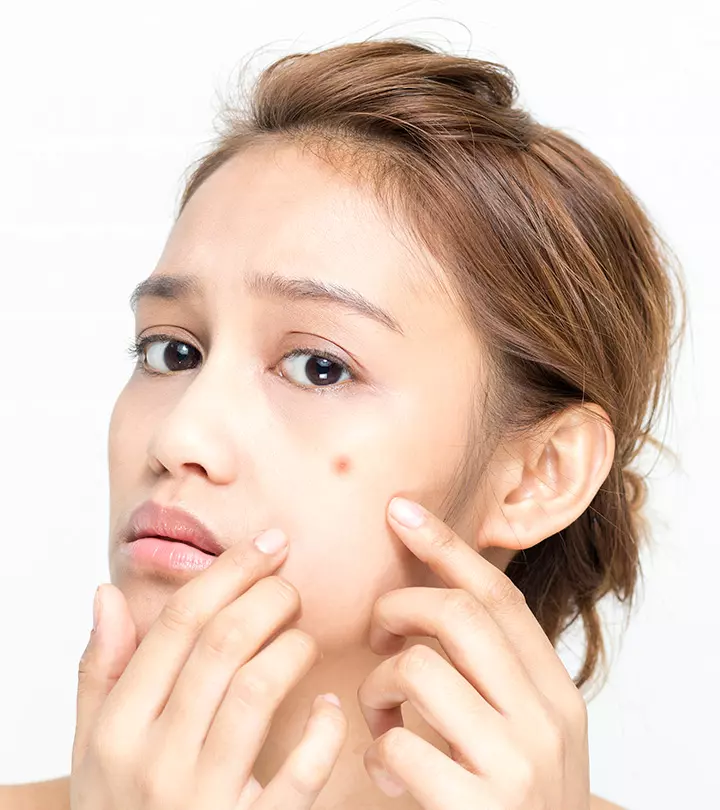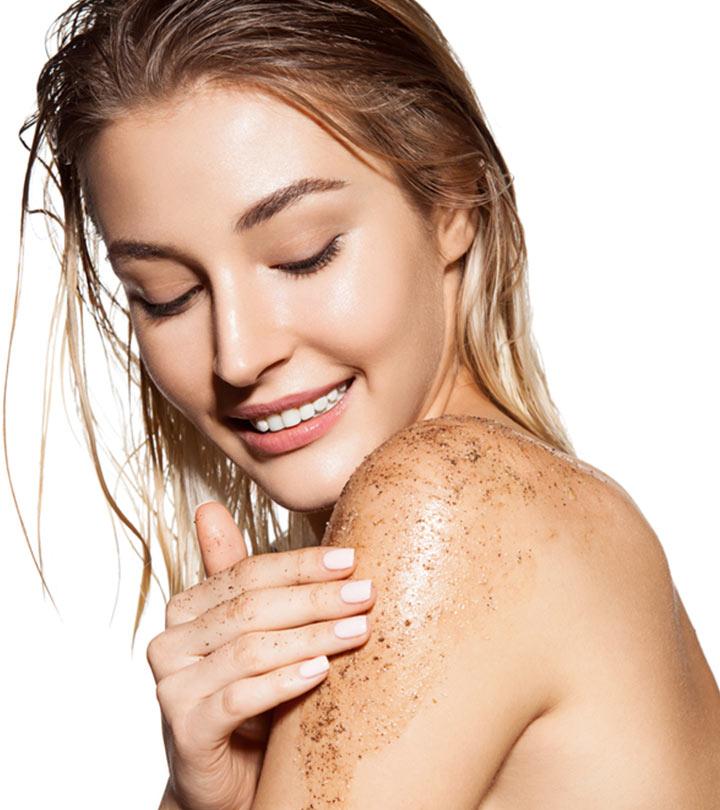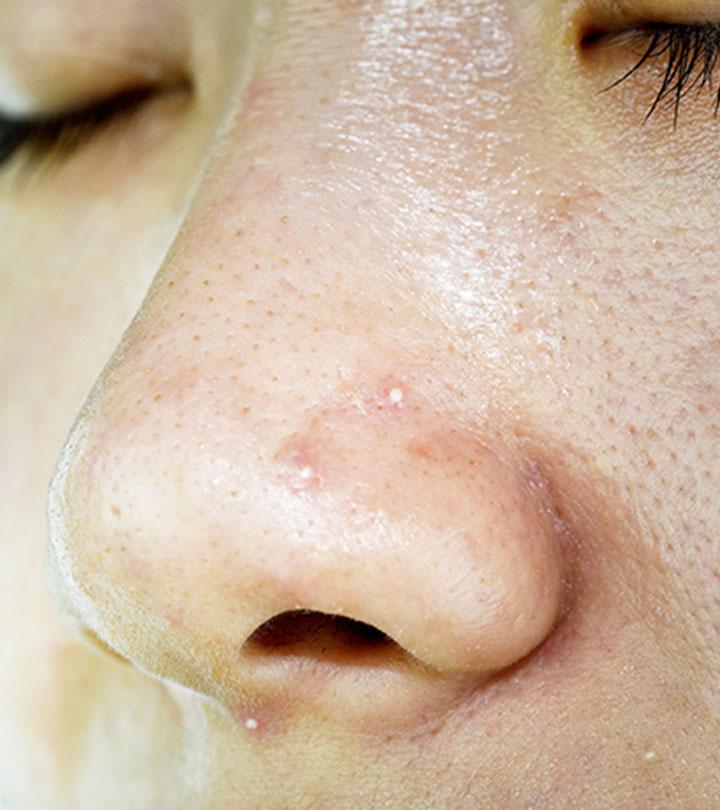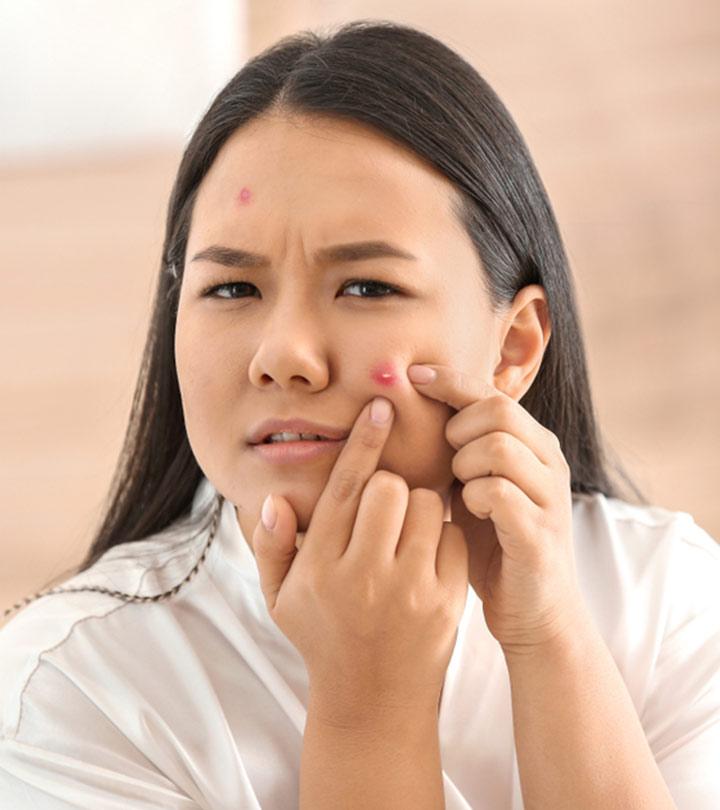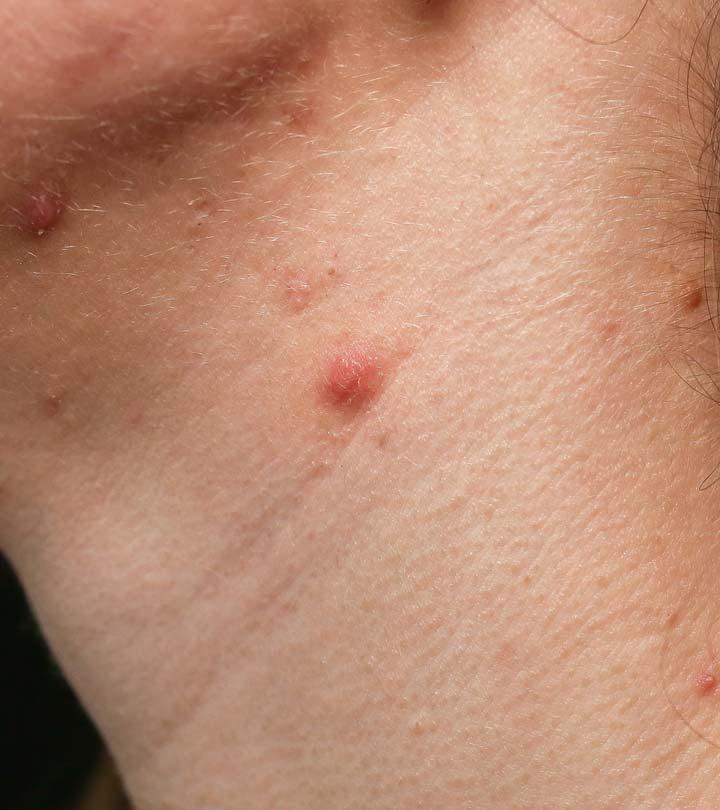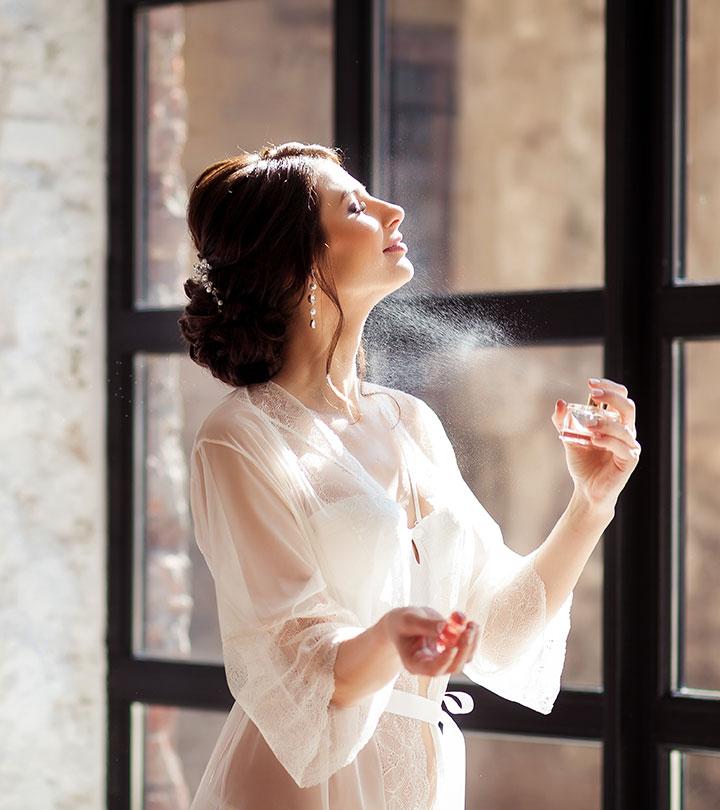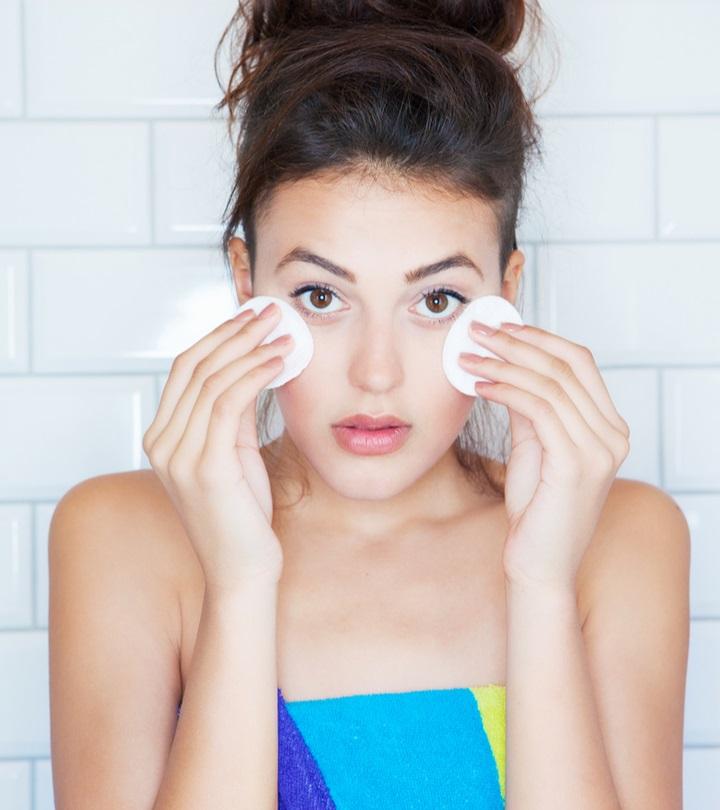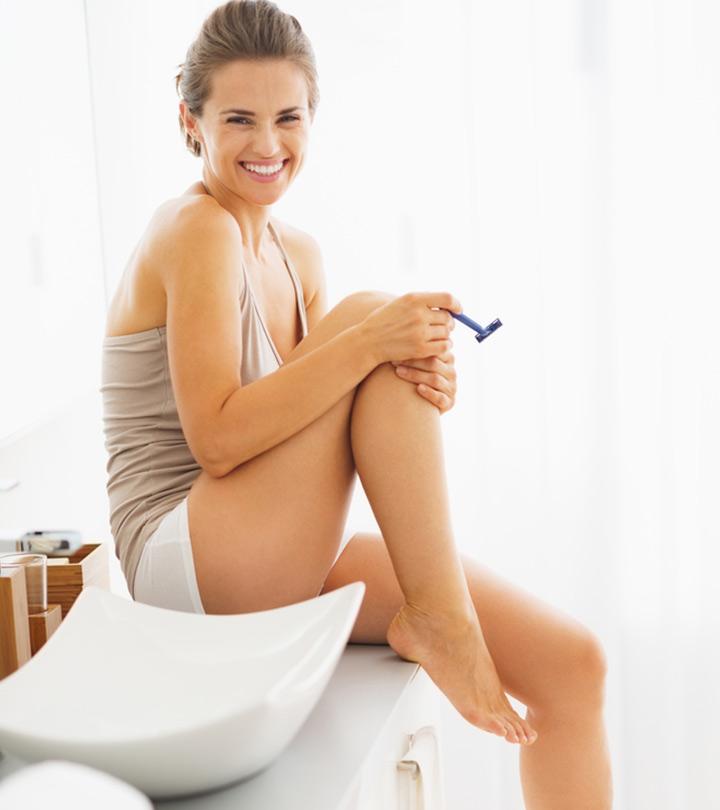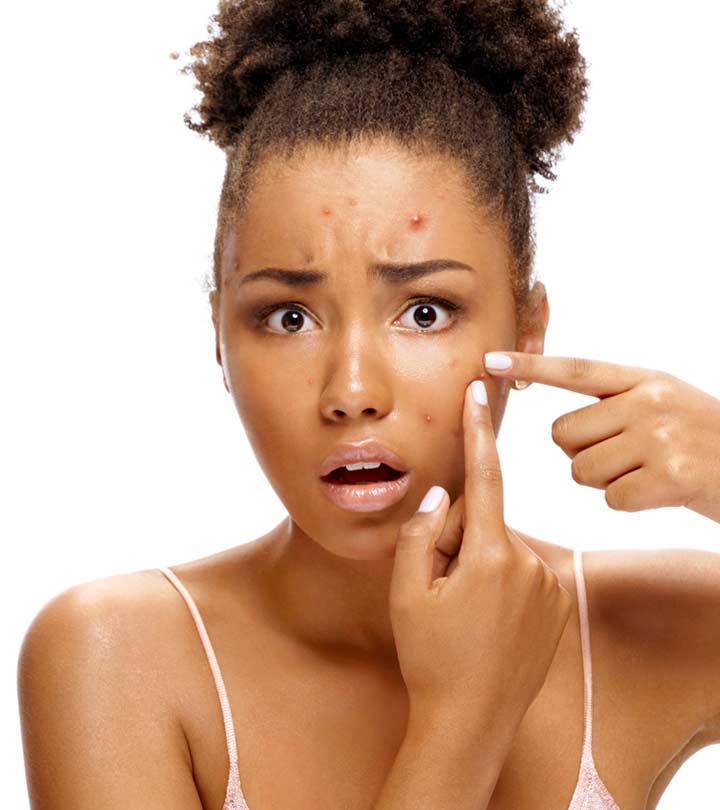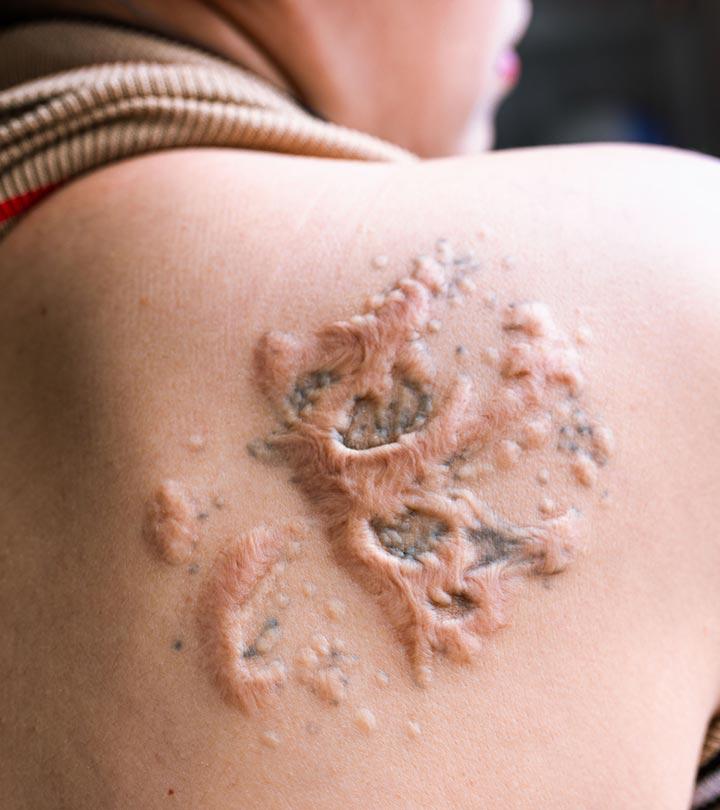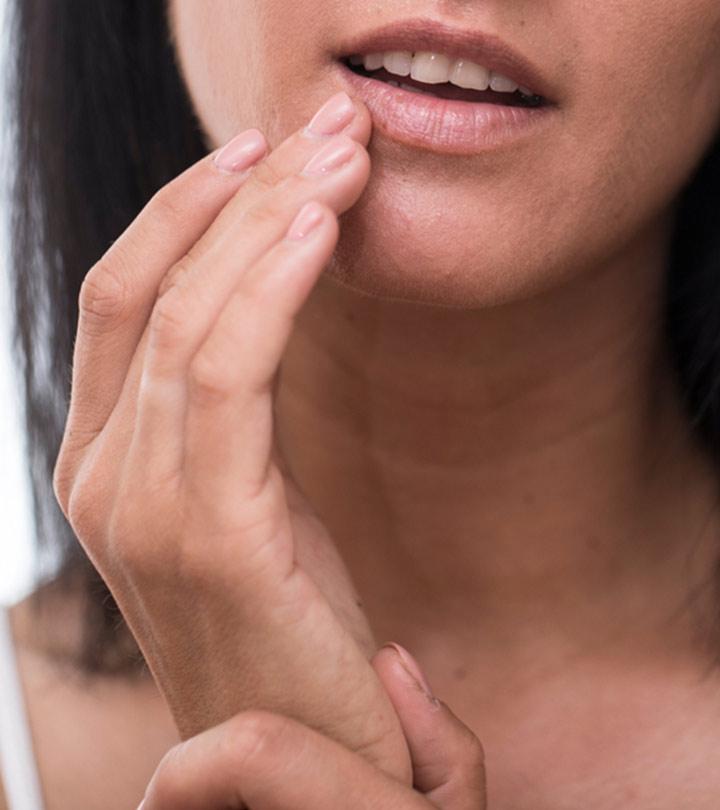Bakuchiol: Benefits & How To Use It | Bakuchiol Vs. Retinol
From slowing down the signs of aging to healing your skin, here's a new ingredient to watch out for!
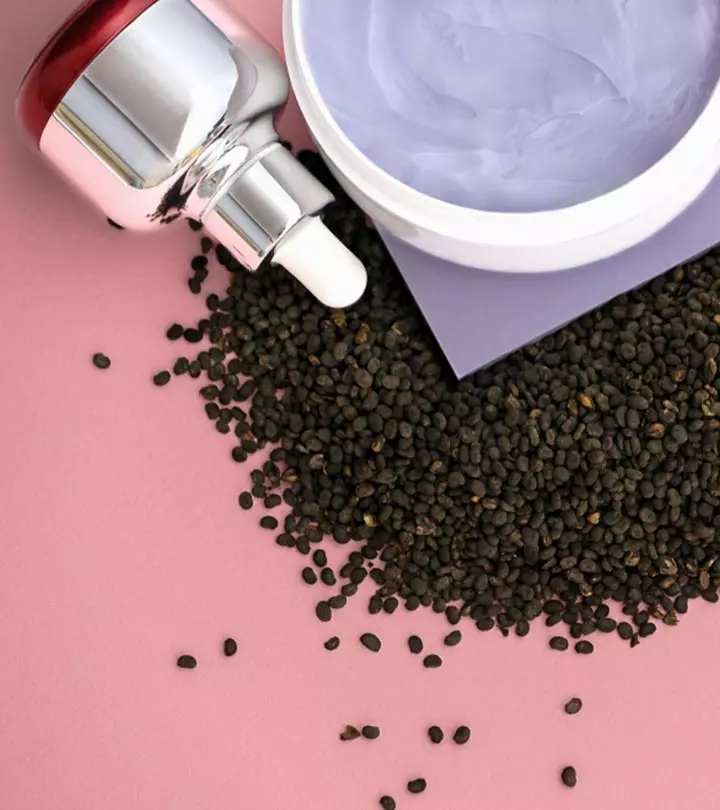
Image: Shutterstock
Whether it is about smoothing out wrinkles and fine lines, boosting collagen production, or tackling acne – retinol is the one-stop solution (1). However, Bakuchiol is a new skin care ingredient taking the skin care world by storm. You may have heard of Bakuchiol’s benefits being praised in the beauty industry lately. It is said to be a less irritating, natural, plant-derived alternative to retinol.
Bakuchiol has been used in Indian and Chinese medicine for many years. It is similar to retinol in terms of benefits and is a good choice for anyone looking for a gentler option. This article covers the benefits of Bakuchiol over retinol. Keep reading!
 Trivia
TriviaIn This Article
What Is Bakuchiol?
Bakuchiol is extracted from the leaves and seeds of the Psoralea corylifolia plant, commonly known as the Babchi plant.
It has been a part of Ayurvedic and Chinese medicinal treatments for soothing inflammation, rashes, redness, and healing cuts. Compared to retinol, bakuchiol is less irritating. That is one reason many prefer this plant-based alternative of retinol.
 Trivia
Trivia| Bakuchiol At A Glance | |
|---|---|
| What Is It | An anti-aging agent (can be a retinol alternative) |
| The Benefits | Reduces wrinkles, fine lines, hyperpigmentation, and acne and improves skin firmness and elasticity |
| Suitable For | All skin types, especially sensitive, rosacea, eczema, and atopic dermatitis-prone skin |
| Frequency Of Usage | Twice a day – morning and night |
| Works Well With | Ingredients like hyaluronic acid, vitamin C, niacinamide, squalene, and PHAs |
| Avoid Using With | Retinoids, AHA-BHA products, and benzoyl peroxide |
While both retinol and bakuchiol may give you the same results, they are two different ingredients. Let’s explore the differences.
Bakuchiol Vs. Retinol: Are They Similar?
No. Both are two different ingredients. Bakuchiol is a plant-derived ingredient, while retinol is a vitamin A derivative. Moreover, retinol and retinoids may cause dryness, peeling, and skin irritation, while this is not the case with bakuchiol.
The only similarity between the two ingredients is the results that they stimulate collagen production.
Bakuchiol and retinol or retinoids boost type I, III, and IV collagen in the skin. Like retinol, bakuchiol can significantly improve fine lines and wrinkles, reduce hyperpigmentation, boost elasticity and firmness, and function as an anti-aging ingredient (2).
Studies confirm that 0.5% bakuchiol cream and 0.5% retinol cream give similar results in reducing hyperpigmentation (1).
Let’s take a look at the benefits of bakuchiol for skin in detail.
The Benefits Of Bakuchiol
1. May Reduce Acne
Bakuchiol has antioxidants that help downregulate 5-alpha-reductase, an enzyme that increases oil production in the skin and, therefore, effectively prevents acne. It also inhibits the growth of P.acnes bacteria (4).
2. Reduces Hyperpigmentation
Bakuchiol can effectively reduce post-inflammatory hyperpigmentationi Dark patches that appear on the skin due to the accumulation of excess melanin triggered by prior trauma. , dark spots, and patches to give you an even skin tone (2), (5).
3. Reduces Signs Of Aging
Bakuchiol can boost collagen production to reduce wrinkles and fine lines and improve skin firmness and elasticity to give you youthful skin. Moreover, it is well tolerated by skin that is prone to eczema, atopic dermatitisi A skin condition triggered by irritants or allergens that causes inflammation and dryness on the body. , rosaceai A common skin condition that causes redness, swelling, and small pus-filled pimples (red bumps) on the face. , cosmetic intolerance, and any other type of sensitivity (2), (3).
4. Helps Soothe And Heal Skin
One of the oldest uses of bakuchiol in Ayurveda and Chinese medication was to heal and soothe the skin. This ingredient has anti-inflammatory properties (6). It may help in calming skin redness and soothing rashes.
Bakuchiol is available as creams, lotions, serums, and oils. Among all forms, serums and oils are the most preferred. If you are torn between which one to go for, find out in the next section.
Bakuchiol Oil Vs. Bakuchiol Serum: Which One To Use?
Serums have a lightweight formula and a lotion-like texture that gets easily absorbed into the skin. Moreover, you can easily layer them with other skin care products. If you have oily and combination skin, or if you want to use bakuchiol with other skin care products, go for a serum.
Oils, on the other hand, are heavier than serums. They are best for dry skin. If you have dry skin and want to use bakuchiol at night, go for an oil-based formula and use it as the last step of your skin care routine.
Here are a few more tips for incorporating bakuchiol into your beauty routine.
How To Use Bakuchiol
1. Do A Patch Test
It is always recommended that you do a patch test on your skin before incorporating it into your skin care routine. Do this especially if you have skin issues and sensitive skin. Moreover, the product you are using may contain other ingredients you might be allergic to.
2. Use It Twice Daily
Use bakuchiol products during the day and night. To keep your skin protected during the day, you can layer it with sunscreen and other skin products. For nighttime, you can use a heavier formula like an oil-based product.
3. Find The Right Percentage
To ensure that your bakuchiol product has the most impact on your skin, check the percentage of the ingredient. Ideally, the percentage of bakuchiol should be between 0.5% and 2% for the maximum and visible results.
4. Combine With Other Correct Skincare Products
You can use bakuchiol products with other hydrating creams, serums, and lotions. Use it with products that contain hyaluronic acid, ceramides, and niacinamide. This will provide your skin with additional hydration to keep it soft, plump, and youthful.
Although bakuchiol goes well with all skin care products, it is better to avoid using it with products containing alpha hydroxy acids (AHAs) and beta hydroxy acids (BHAs). However, you can use bakuchiol after using AHA-BHA cleansers. Also, avoid using it with retinol as both ingredients work in the same way and may irritate the skin.
Let’s take a look at the side effects of using bakuchiol.
Side Effects Of Bakuchiol
Bakuchiol is a relatively new ingredient in the skin care world, and so far, there is no known side effect. It is also considered safe for pregnant and breastfeeding women. However, it is better to be safe than sorry. Always consult a dermatologist before introducing a new ingredient to your skin care routine, especially if you are pregnant or undergoing treatment for a skin issue.
Another side effect of bakuchiol that you may want to know about is purging. Check out the next section for more info.
Can Bakuchiol Cause Purging?
Anecdotal evidence suggests that bakuchiol is less likely to cause purging than retinol. However, if you have sensitive skin, you may still be prone to it. Bakuchiol may make your skin look worse before it gets better. Nevertheless, it usually resolves within a few weeks once your skin gets accustomed to it. The best way to avoid purging is by starting slow with it. You may also use the sandwich method, which involves waiting for your face to dry after cleansing and applying a moisturizer. Then, apply a few drops of bakuchiol and follow up with another layer of moisturizer.
So, is it a good idea to replace retinol in your skin care routine with bakuchiol? Let us find out.
Switch Or Not?
Bakuchiol is definitely a relief for all those who have wanted to use retinol but could not due to sensitive skin issues. With regular usage, bakuchiol can boost your skin firmness, help in wrinkle reduction, make your skin look brighter by reducing pigmentation, and help maintain a youthful look. However, if your skin is comfortable with retinol or retinoids, there is no need to switch right away unless you are curious to give it a try. Since it is a relatively new ingredient, always consult a dermatologist before using it.
Infographic: 4 Amazing Benefits Of Bakuchiol You Must Know
Bakuchoil has received increased attention for its capacity to act as a retinol substitute without the side effects. From reducing acne to soothing the skin, it has many skin benefits. We have listed 4 amazing benefits of bakuchiol for the skin in the infographic below. Check it out now!

Illustration: StyleCraze Design Team
In Summary
As a new entrant to the world of skin care, bakuchiol is being praised for the several benefits it has on your skin. It has been a part of several ancient medicines as it helps treat soothing inflammation, heal rashes, redness, and healing cuts. This ingredient is also an alternative for retinol due to its gentle nature. The benefits of bakuchiol include acne management, reducing hyperpigmentation, anti-aging properties, and soothing the skin. Though considered safe, it is best to consult a doctor before including bakuchiol in your skin care routine.
Frequently Asked Questions
Is bakuchiol good for dark circles?
Yes. Bakuchiol is good for dark circles, and it also helps reduce wrinkles and fine lines. This powerful ingredient works like retinol without any sensitivity.
Does bakuchiol lighten skin?
Yes. Bakuchiol helps reduce hyperpigmentation and also reduces the appearance of wrinkles (7).
Does bakuchiol cause sun sensitivity?
No. Bakuchiol doesn’t cause sun sensitivity and can be used during the day and night.
Is bakuchiol an exfoliant?
No. According to Patricia Gaile Espinos, a board-certified dermatologist, “Bakuchiol is a phenolic compound found in seeds and leaves of the plant Psoralea corylifolia. It has similar functions to retinol. It helps the skin by maintaining water balance, stimulating collagen production, and promoting good skin tone, elasticity, firmness, and texture. It regulates the expression of certain genes and proteins involved in skin aging. This makes bakuchiol a good anti-aging product that reduces the appearance of wrinkles and brightens skin.”
Key Takeaways
- Bakuchiol is a vegan alternative to retinol and is used to treat inflammation, hyperpigmentation, rashes, redness, and wounds.
- It inhibits the growth of acne-causing bacteria and prevents breakouts.
- If you are using bakuchiol products, check if the concentration is between 0.5% and 2% for maximum and visible results.
Learn about the concerns surrounding Bakuchiol, a natural alternative to retinol, from an expert dermatolgist. Watch the video below now to get information on everything you need to know to make an educated decision in this ingredient.
References
Articles on StyleCraze are backed by verified information from peer-reviewed and academic research papers, reputed organizations, research institutions, and medical associations to ensure accuracy and relevance. Read our editorial policy to learn more.
- Retinoids in the treatment of skin aging: an overview of clinical efficacy and safety
https://www.ncbi.nlm.nih.gov/pmc/articles/PMC2699641/ - Bakuchiol: a retinol-like functional compound revealed by gene expression profiling and clinically proven to have anti-aging effects
https://pubmed.ncbi.nlm.nih.gov/24471735/ - Prospective randomized double-blind assessment of topical bakuchiol and retinol for facial photoageing
https://pubmed.ncbi.nlm.nih.gov/29947134/ - Bakuchiol in the management of acne-affected Skin
https://www.researchgate.net/publication/284931325_Bakuchiol_in_the_management_of_acne-affected_Skin - Trichloroacetic acid model to accurately capture the efficacy of treatments for postinflammatory hyperpigmentation
https://www.researchgate.net/publication/340474455_Trichloroacetic_acid_model_to_accurately_capture_the_efficacy_of_treatments_for_postinflammatory_hyperpigmentation - Isolation and anti-inflammatory activity of Bakuchiol from Ulmus davidiana var. japonica
https://pubmed.ncbi.nlm.nih.gov/20553183/ - Prospective, randomized, double-blind assessment of topical bakuchiol and retinol for facial photoageing
https://pubmed.ncbi.nlm.nih.gov/29947134/
Read full bio of Dr. Priya Gill
Read full bio of Anjali Sayee
Read full bio of Shiboli Chakraborti





